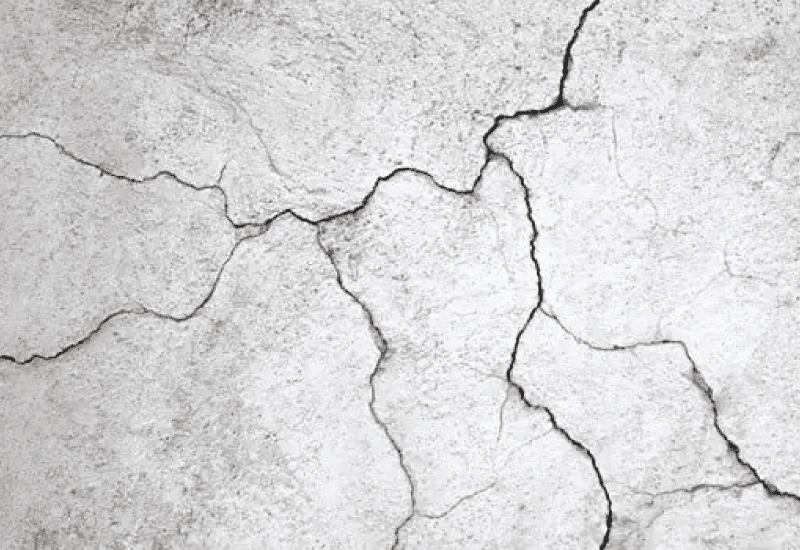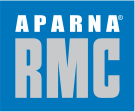Will concrete crack under heavy heat?

June 1, 2024
Concrete, the backbone of modern infrastructure, is renowned for its strength and durability. However, in a country like India, where temperatures can soar to extreme levels, concerns arise about its performance under intense heat. Will concrete crack under heavy heat? This blog delves into this question, examines India’s unique temperature-related concrete challenges, and highlights how ready mix concrete (RMC) from Aparna RMC offers a robust solution.
Understanding Concrete and Heat
Concrete is a composite material made from cement, water, and aggregates. Its strength and durability are achieved through the hydration process, where cement reacts with water to form a hardened matrix. However, extreme temperatures and high humidity can disrupt this process, leading to potential issues like cracking.
The Impact of Heat on Concrete
Thermal Expansion and Contraction
One of the primary concerns with concrete in high temperatures is thermal expansion and contraction. When exposed to heat, concrete expands, and as temperatures drop, it contracts. This constant movement can cause internal stresses, leading to cracks.
Loss of Moisture
High temperatures accelerate the evaporation of moisture from concrete. Since water is crucial for the hydration process, its rapid loss can weaken the concrete, making it more susceptible to cracking.
Structural Integrity
Prolonged exposure to extreme heat can compromise the structural integrity of concrete. At temperatures above 65°C (149°F), concrete can begin to lose its strength, increasing the risk of cracking and other damage.
India’s Temperature Concrete Problem
India experiences a wide range of temperatures, with some regions facing extreme heat, especially during the summer months. For instance, cities like Delhi, Jaipur, and Ahmedabad often see temperatures soaring above 45°C (113°F). This intense heat poses significant challenges for concrete structures, from residential buildings to bridges and highways.
Heat-Induced Cracking
In India, heat-induced cracking is a common issue. The combination of high daytime temperatures and cooler nights causes repeated expansion and contraction cycles, leading to micro-cracks that can grow over time, compromising the durability of concrete structures.
Reduced Workability
High temperatures can also reduce the workability of concrete, making it difficult to mix, transport, and place. This can result in improper compaction and curing, further increasing the risk of cracks and structural weaknesses.
The Challenge of Mass Concrete
Heat of Hydration
The problem with using portland cement in concrete is that it generates a significant amount of heat as it hydrates. In small quantities and thin slabs, this heat dissipates evenly and quickly. However, with mass concrete elements such as deep and wide foundations, piers, columns, mat slabs, and walls, the temperature in concrete can increase faster than it escapes. High temperatures and temperature differences between the center of the mass and the surfaces can cause thermal cracks to develop.
What Constitutes Mass Concrete?
Mass concrete is generally regarded as concrete elements with minimum thicknesses of four to six feet. The increased heat generated by mass concrete elements poses a risk of thermal cracking due to significant temperature differences between the core and the surface. To manage this, it is crucial to use concrete mix designs with a reduced temperature rise (i.e., a lower heat of hydration).
The Solution: Ready Mix Concrete (RMC) from Aparna RMC
Ready mix concrete (RMC) from Aparna RMC offers a reliable solution to the temperature-related challenges faced by concrete in India. Here’s how:
Quality Control
Aparna RMC ensures stringent quality control measures at every stage of production. From selecting high-quality raw materials to precise mixing and batching, every step is optimized to produce concrete that can withstand extreme temperatures.
Customized Mix Designs
Aparna RMC provides customized mix designs tailored to specific project requirements. This includes incorporating additives and admixtures that enhance the concrete’s resistance to thermal expansion and contraction, reducing the risk of cracking. For mass concrete applications, this often involves replacing some of the portland cement with class F fly ash or slag cement to lower the heat of hydration.
Timely Delivery and Efficient Placement
One of the key advantages of RMC is its timely delivery and efficient placement. Aparna RMC ensures that the concrete is delivered and placed within the optimal timeframe, minimizing the risk of moisture loss and ensuring proper curing.
Enhanced Durability
With Aparna RMC, you get concrete that’s designed for enhanced durability. The use of high-performance materials and advanced mixing techniques results in concrete that can endure India’s extreme temperatures without compromising structural integrity.
Conclusion
In a country like India, where extreme heat is a significant concern, understanding how concrete behaves under such conditions is crucial. Ready mix concrete from Aparna RMC offers a robust solution, ensuring high quality, durability, and resistance to heat-induced cracking. By choosing Aparna RMC, you can rest assured that your concrete structures will stand the test of time, even in the face of India’s challenging temperatures.
For more information on ready-mix concrete and how Aparna RMC can help with your construction needs, visit our website.
